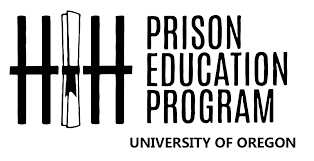WINTER 2024 /CULTURE, ETHNICITY, AND NATIONALISM/ GEOG 445/ SHAUL COHEN
The modern political system organizes the world along the lines of countries, and countries are often identified as belonging to nations. Nationalism is an expression of belonging to a state, it roughly defines the land, people, and institutions that constitute the members of the state. Ethnicity too is an expression of belonging, and is composed of elements of culture, history, and identity that make its members distinct. This course will address these powerful dynamics that mark societies made up of more than one ethnic group. It will focus on the challenges that individuals, families, communities, cultures, and states experience when they are in tension with one another. Significant attention will be given to the the United States, and additional cases from around the world will be introduced. Through readings, exercises, writing, and dialogue, students will learn about some of the effects of nationalism and ethnicity in our own lives, and the lives of those around us. The class will meet on Monday evenings, with mandatory attendance required.
WINTER 2024 / STRUCTURAL INEQUALITY IN THE US: THE EXAMPLE OF SCHOOLS, THE LABOR MARKET AND THE CRIMINAL JUSTICE SYSTEM/ SOC 410/ ELLEN SCOTT
In this course, we will consider how class, gender and racial inequality are experienced and how they shape institutions, such as the labor market, social welfare system, schools, and the criminal justice system.
The class will be entirely discussion-based. We will conclude by employing the concepts from the course to examine our own lives through the lens of the institutional structures studied (work/economy, education, family and friendship networks, criminal justice system). This will constitute the core of the final essay for the course.
Institutions manage and process people. Medicine, like many institutions, tends to define people in terms of their problems – disease, drugs, mental illness. Fiction inverts this structure, seeing character as something that transcends problems. Fiction tends not to diagnose, pathologize, or moralize. And while medicine leans toward closure (a cure, death), narrative’s drive toward resolution is most satisfying, I would argue, when the questions that drive the narrative remain, to some degree, unanswered, retaining mystery.
The new field of Narrative Medicine, inaugurated at Columbia University by a team of doctors, scientists, literature and film scholars, and fiction writers, begins with the premise that medicine centrally involves a nuanced human exchange mediated by language, specifically narrative. A patient tells a story, and a practitioner interprets, retells, alters, and “concludes” it, often without doing justice to the complexity of such an exchange, the power relationships that animate it, and without recognizing the ways in which “closure” eludes us. Institutions are designed to solve problems, not multiple them. Yet by imposing closure prematurely, science “ignores the ethical demand out of which it arises,” namely, its commitment to doubt, uncertainty and ignorance, hallmarks of scientific inquiry. The promise of narrative medicine is that literary values and techniques of interpretation can answer this ethical demand in multiple ways: by restoring attention to the ambiguity and nuance, which fruitful narrative exchanges require; increasing tolerance for uncertainty; sharpening powers of observation and reflection; developing awareness of our affect and its interference in interpretation; building cooperation and trust in relationships that are traditionally hierarchical; respecting different forms of knowledge and experience; adopting a practice of radical listening, and fostering creativity. In this course, we will study some of the most striking and innovative short stories in various linguistic traditions and periods alongside theoretical materials that will help us to better understand the elements of narrative and the principles of Narrative Medicine. By focusing on moments of ambiguity and problems of closure, we will accept the Jamesian challenge laid out in The Art of Fiction: “Try to be one of those on whom nothing is lost.” Assignments will be both interpretative and creative.
How do different groups of people live with, or sometimes die from, climate change impacts? Who produces the knowledge to grapple with climate change — and who doesn’t? How is climate change experienced, understood, studied, and managed in different ways depending on race, class, gender, age, and geography? These are the kinds of questions this course tackles to learn about environmental justice, about the unevenness of climate change, and about ourselves. The course will grapple with these issues across many places worldwide: from coastlines and mountains, to prisons and Antarctic icebergs, to farms and food. While the course will examine theoretical and scientific aspects of climate, the justice emphasis asks us to think also about ethics, morality, and fairness. Ultimately, this helps us reflect more profoundly on how people interact with and influence not only our planet but also each other.
